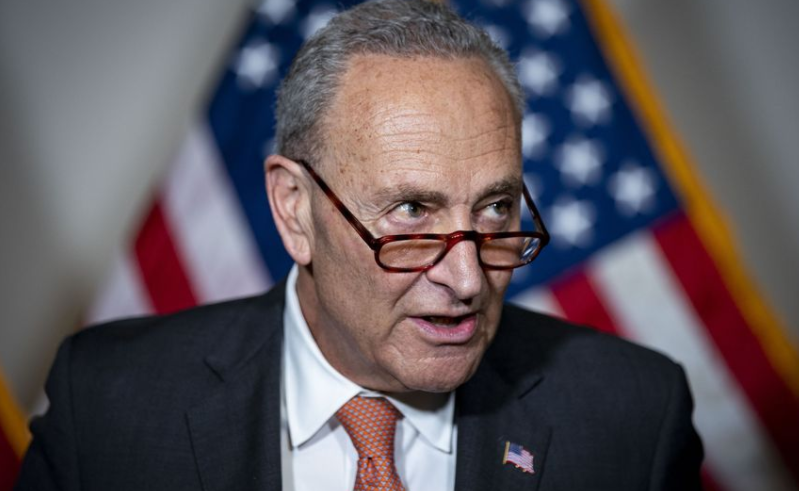Fri Oct 08, 2021
Friday / October 8
US not defaulting — for now
- Schumer said the vote on speeding up the passage of the debt ceiling increase agreement will take place at 7:30 p.m. ET.
If the Senate approves the extension of the debt limit, the House of Representatives will have to approve it before it is sent to President Biden's desk.
Voting could happen sooner if all 100 Senate members, split evenly between Democrats and Republicans, agree to speed up the process.
- If the law passes as expected, the Treasury's current debt limit will increase from $28.4 trillion to $28.9 trillion.
McConnell briefly broke the partisan stalemate that hasn't been resolved for weeks by offering Democrats a short-term debt ceiling hike yesterday.
Labor figures
The total of Americans filing for unemployment fell sharply last week as federal unemployment benefits dwindled, the US Department of Labor reported.
Initial applications for unemployment benefits for the week ending on October 2 were 326,000, below the Dow Jones estimate of 346,000 and the previous week's figure of 364,000.
Markets rose slightly after the report, so did government bond yields.
However, the four-week moving average rose to 344,000. Continuing a week behind and applying for at least two weeks' benefits, the total also showed a healthy decline, from 97,000 to 2.71 million.
Reaction in stocks
After Schumer's announcement, the Dow Jones Industrial Average rose 337.95 points, or 1%, to 34,754.94.
The S&P 500 was up 0.8% to 4,399.76, while the tech-heavy Nasdaq Composite was up nearly 1.1% to 14,654.02. Thursday's gains turned the weekly performances of major indexes green.
Fears that Washington would not be able to reach an agreement on the debt ceiling and that the US government would default on paying its bills have been a major concern for investors for much of this week.
Ireland - onboard
In a major foreign trade policy change, Ireland announced Thursday that it has decided to sign a global agreement that imposes a global corporate tax rate of 15%.
The G-7 and G-20 countries agreed earlier this summer to join forces to combat tax evasion and harmonize rules around the world.
If implemented, the plan will force multinational companies to pay taxes where they operate, not just where their headquarters are located, and will impose a minimum corporate rate of 15%.
The Republic of Ireland has one of the most attractive rates for companies in the world, at 12.5%. This is why the island nation has so far refused to participate in the global tax scheme.
China-US line
The US Central Intelligence Agency (CIA) announced on Thursday that it has established a new "China Mission Center".
The center is intended to “address the global challenge posed by the People’s Republic of China that cuts across all of the Agency’s mission areas,” the CIA chief William with Burns said in a statement.
- He added that it “will further strengthen our collective work on the most important geopolitical threat we face in the 21st century, an increasingly adversarial Chinese government.”
The initiative follows reports from the "Chinese task force" at the Pentagon and the new "Chinese house" at the State Department.
According to the AP, the CIA statement stated that the China mission unit will address global issues that are critical to the competitiveness of the United States, such as emerging technologies, economic security, climate change and health issues.
Finally taking a step to increase Treasury's borrowing authority by $480 billion, the U.S. Senate succeeded in avoiding an economic crisis as a result of the U.S. government's inability to pay its debts.
Senate Democratic Leader Schumer and his Republican counterpart, McConnell, agreed on Thursday on a short-term measure that would prevent the catastrophic debt default expected later this month, though til December 3.
